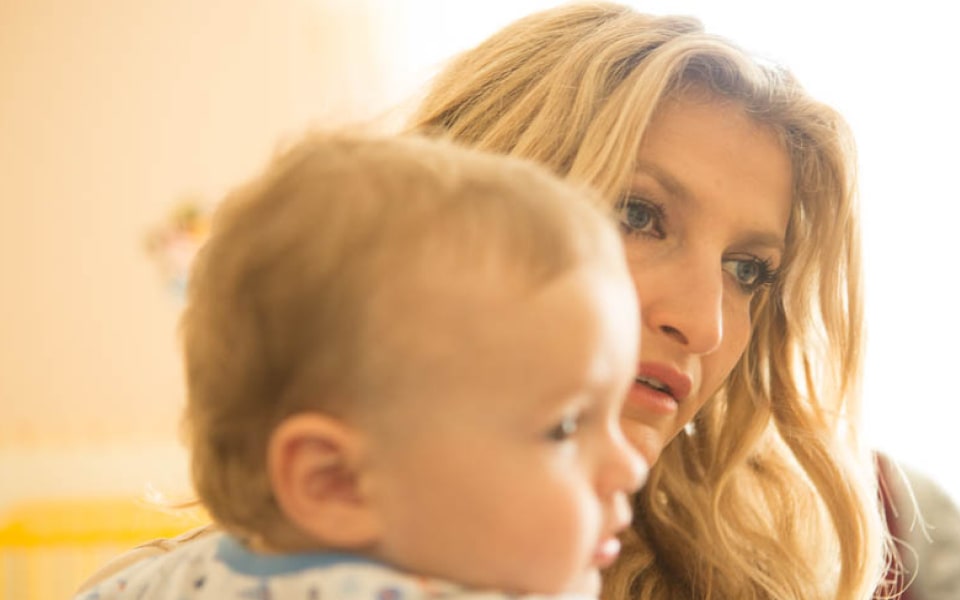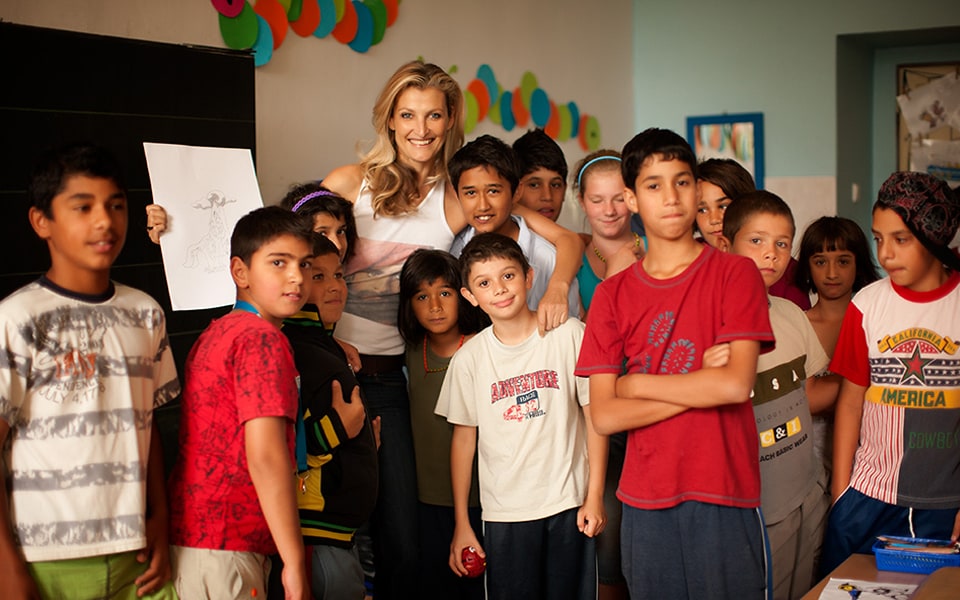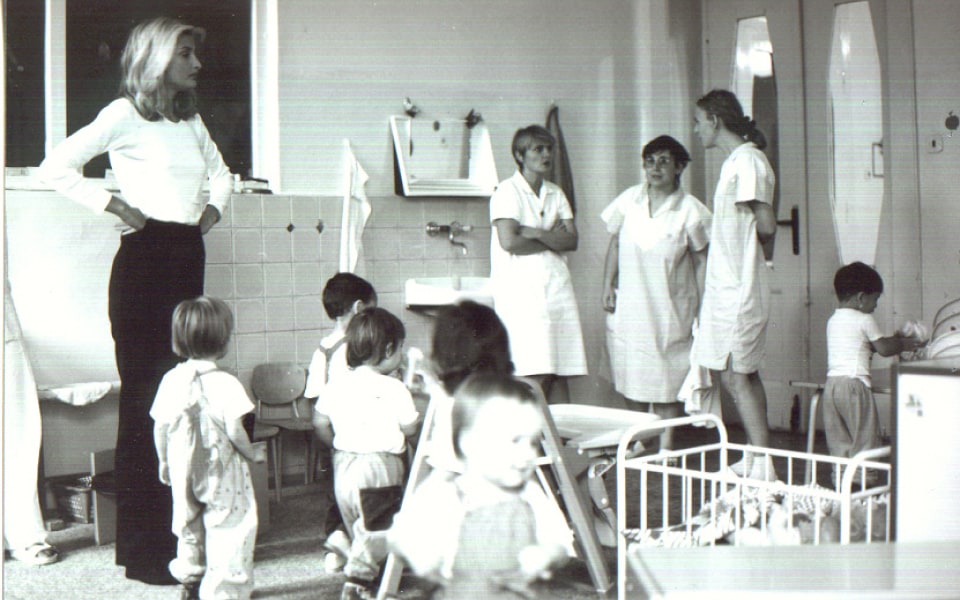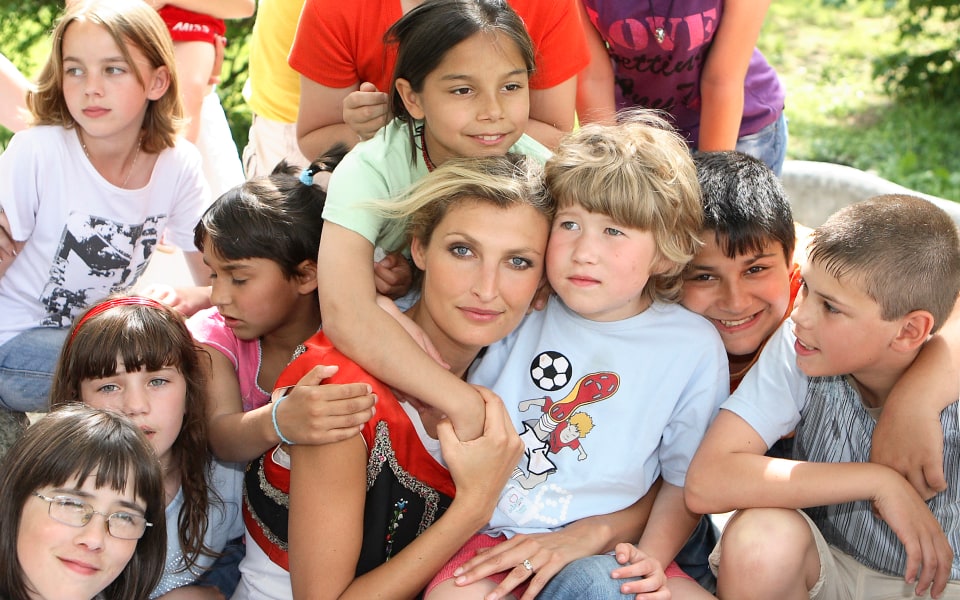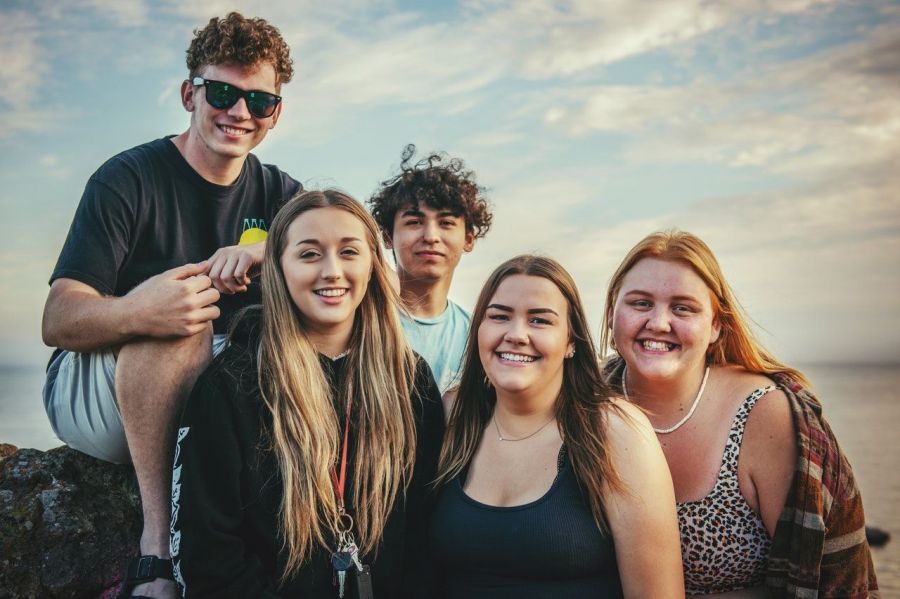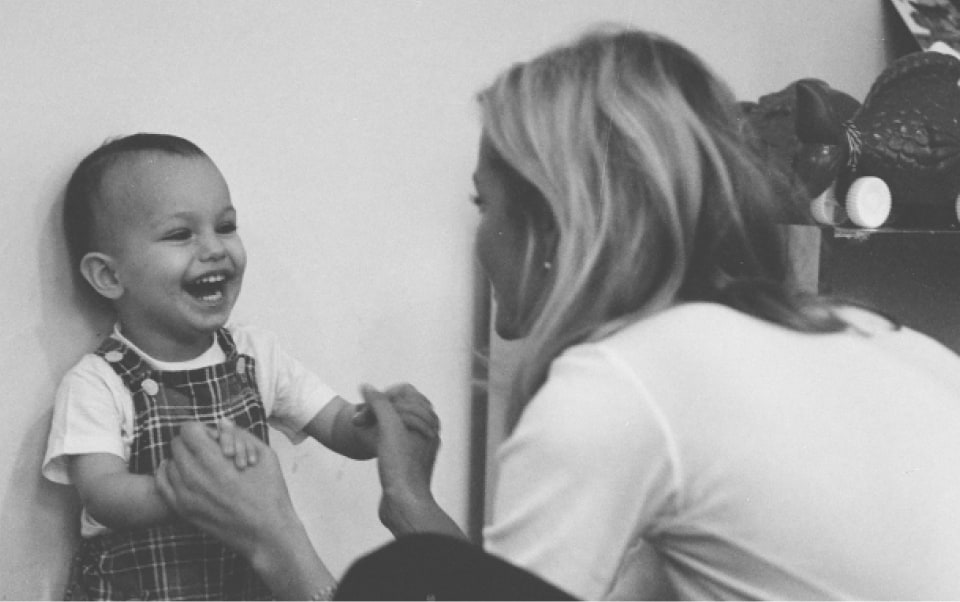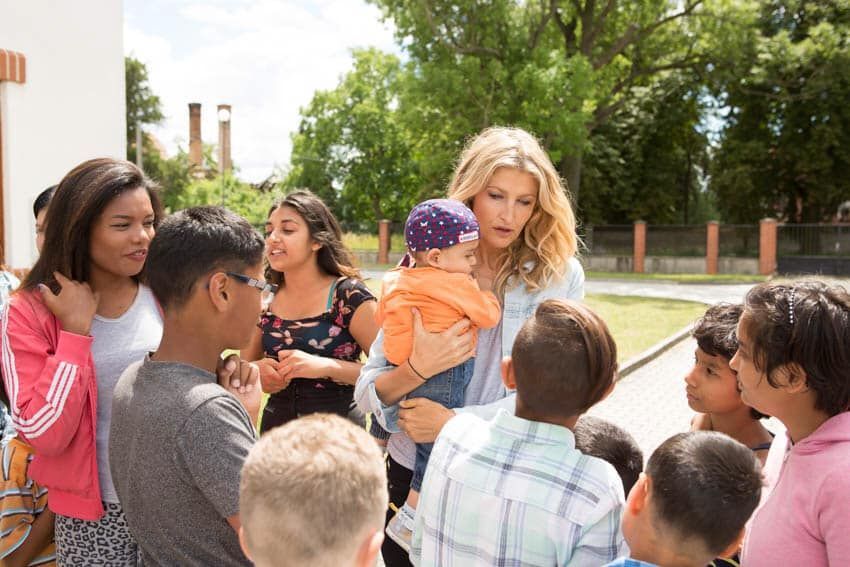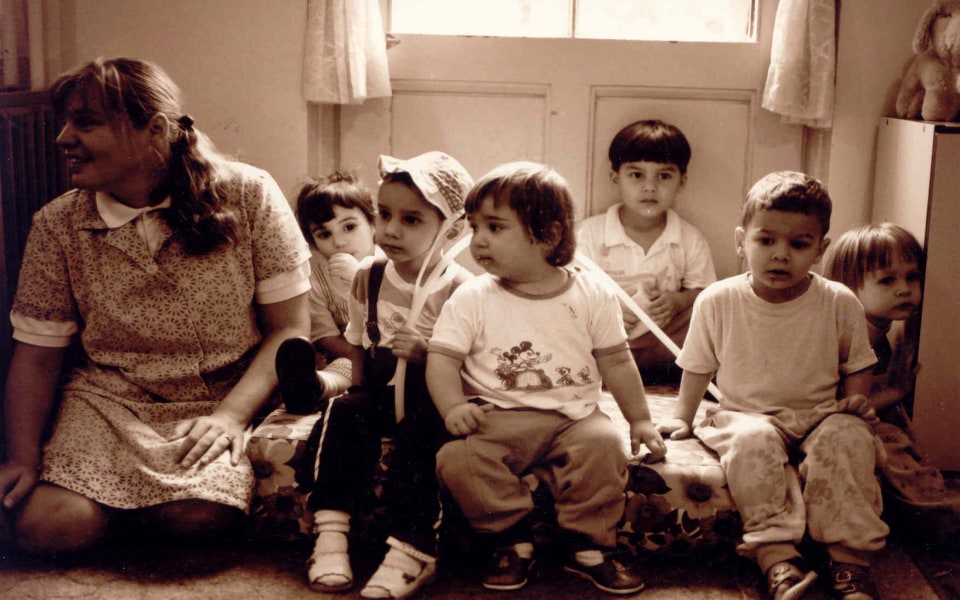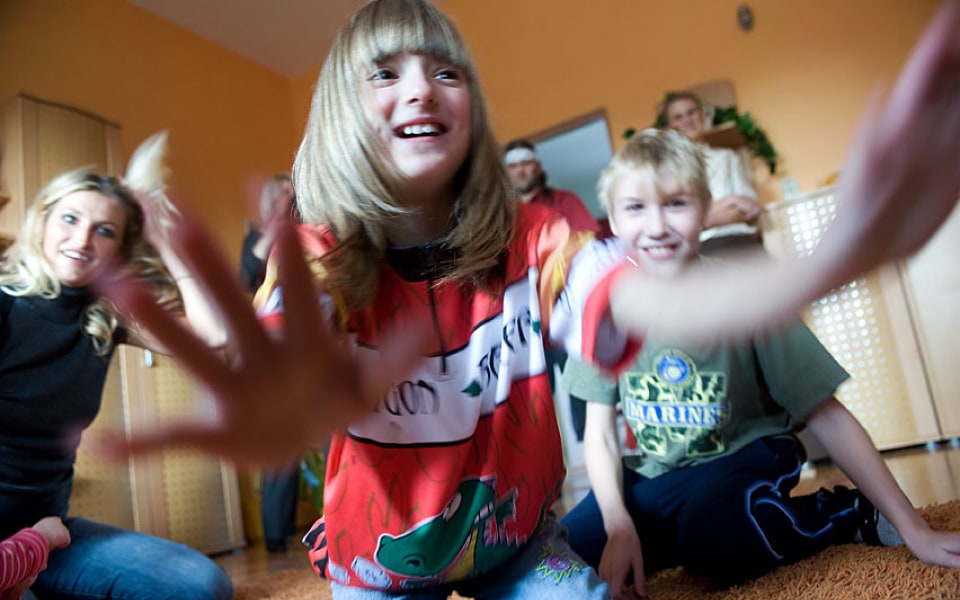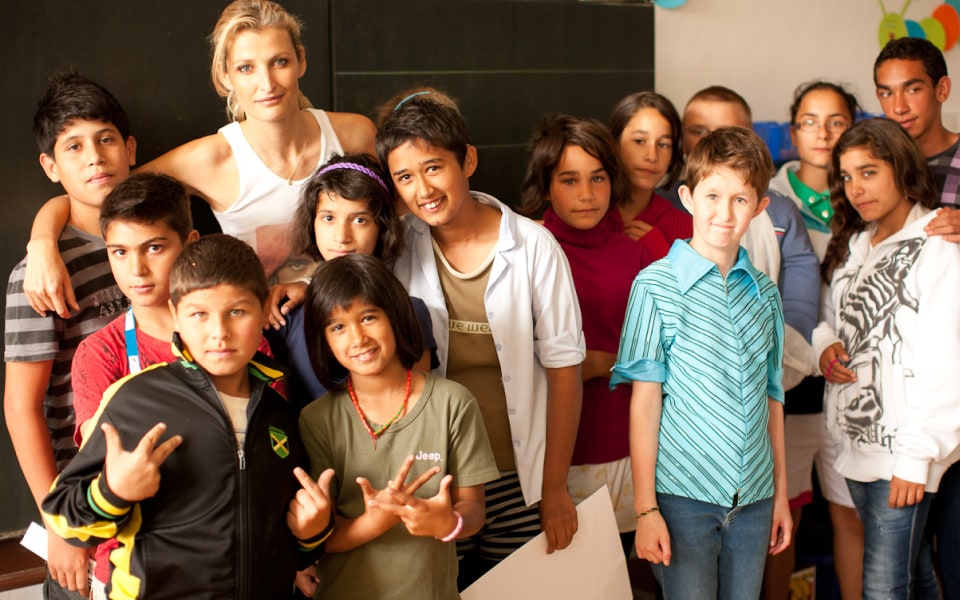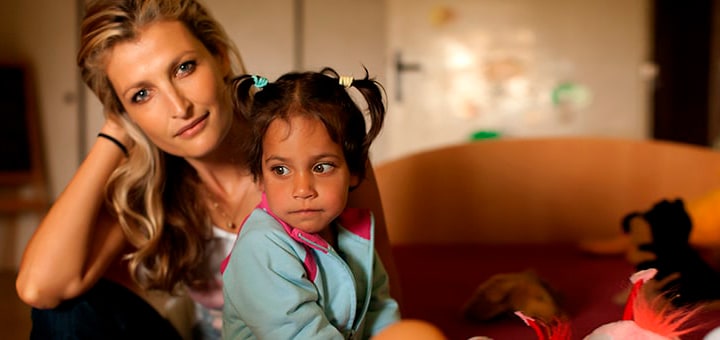Who do we help?
Why do we help abandoned and disadvantaged children? Because we believe that every child deserves to spend his or her childhood and formative years in a loving and safe family environment. Unfortunately, this is not always possible. Sometimes, for reasons beyond the family’s control, children benefit from growing up outside of their families. In these circumstances, we aim to give them the care and opportunities necessary to help them thrive in a loving and supporting setting. Additionally, quite often, helping parents means helping children. That’s why we’ve defined the following ten areas of assistance to distribute our donors’ funds, and through which are able to are improve the lives of many at-risk children.
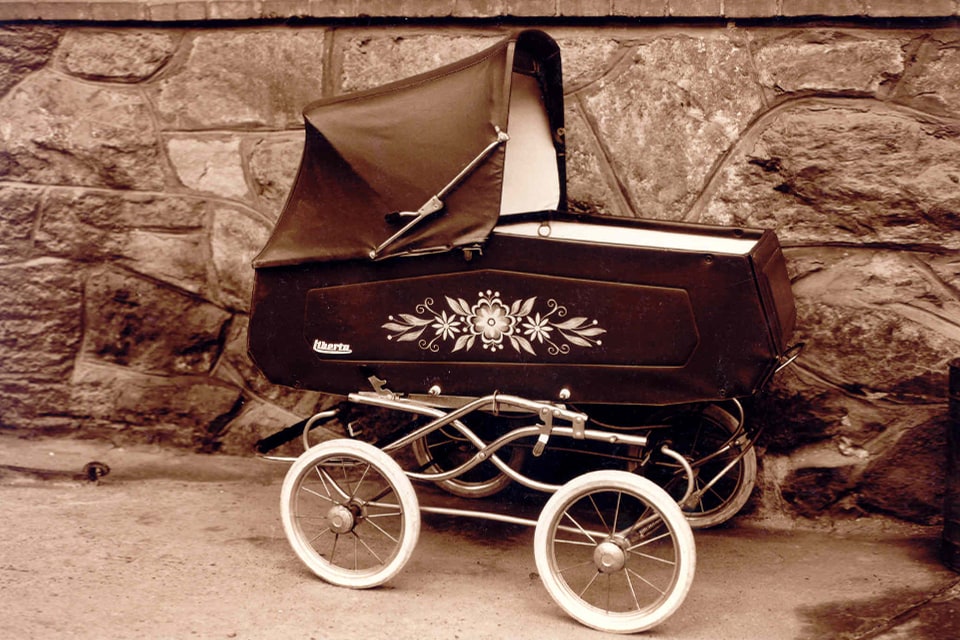
pregnant mothers in need
…because no one can replace mom!
Sometimes due to unexpected pregnancy or circumstances beyond a young mother’s control, she may be left struggling to cope with her pregnancy or newborn. However, with the right help at the right time, she can become a loving and caring mother regardless of her background.
READ MORE
For example, the case study of a young mother called Ester, who herself grew up in an orphanage without family support. Once she reached adulthood, she left the institutional care and tried to return to her parents, only to find out that they were not able to take care of her siblings, let alone themselves or their house. She left home soon thereafter, met her partner Jirka, and soon fell pregnant. Ester worried that she wouldn’t be able to provide for her child and panicked, as the young parents had nowhere to live and no funds with which to raise the baby.
Luckily, social services recommended “At the Beginning”; a project which supports mothers in similarly difficult situations. The project workers helped Ester to find a home, as well as baby clothes and other supplies. Ester went from feeling anxious about her daughter’s arrival, to looking forward to it. Nikola was born a few months ago, and has both parents taking good care of her. “At the Beginning” workers continue to support Ester through regular checkups, providing advice on how to take care of the baby properly. They are sure of one thing: Nikola will have a better childhood than her mother had.
Through financing projects like “At the Beginning”, we support pregnant women in need to help mothers to stay with their children and children to stay in the safe arms of moms!
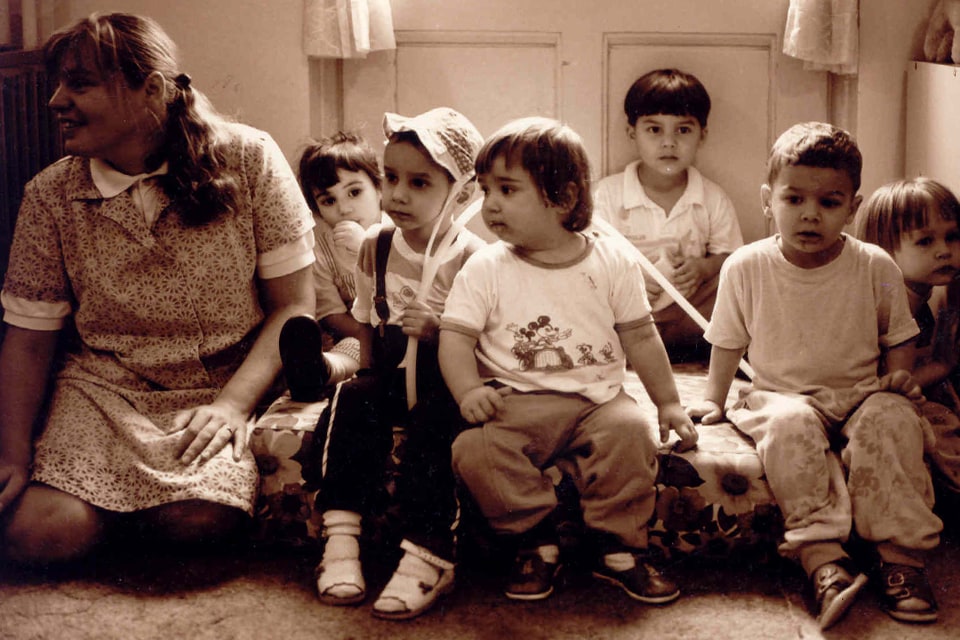
families in difficult situations
…because hardship doesn’t have to mean splitting up a family.
When parents love their children and want to provide for them yet lack the resources to do so, it is tearing the family apart purely for social reasons is never the right answer.
READ MORE
In the case of Eliška, even though her marriage has fallen apart, she remains a caring and loving mother to seven children. Their father has left them, and refuses to pay child support. Eliška, who suffers from epilepsy, is on maternity leave with her youngest child. With the rent overdue, Eliška faces eviction and risks having her children placed in institutional care – given the number of siblings, they would certainly have to be separated and divided into several facilities.
Despite her financial difficulties and the struggles of single-parenting, Eliška takes good care of her family. The children go to school, although they cannot afford school lunches or extracurricular activities. Eliška cooks for her children daily, reads to them, and helps them with schoolwork. Although Eliška budgets carefully and saves her money, finding a new home would be very difficult for such a large family. Thus, the social workers negotiated a payment plan with her landlord, and Eliška is paying off the debt. With her maternity leave ending soon, and and whilst she is looking for a job, she asked the Tereza Maxová Foundation for Children for help with her mounting debt. Her social workers supported the request, and Eliška was able to secure a home for her family.
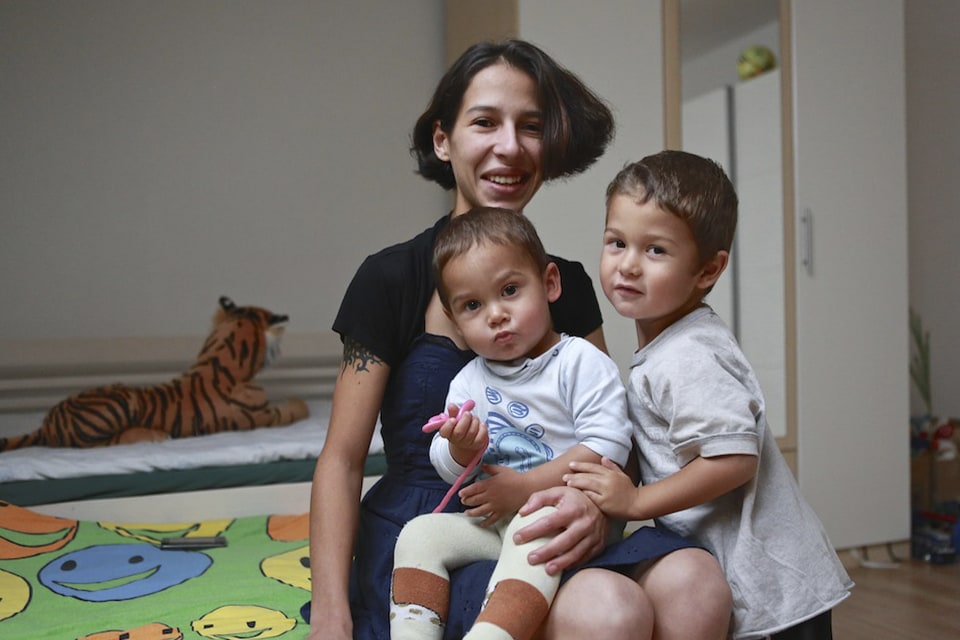
mothers in shelter homes getting fresh starts
…because improving the lives of mothers means giving their children a better future.
We support mothers to help them rebuild their lives upon leaving the shelter home, teach them how to plan and manage the family budget, and how to avoid cumulating debts.
READ MORE
“When we met, I didn’t realize my boyfriend was a jealous manipulator,” Dana says. “Our first weekend was amazing, followed by a flurry of messages asking how I was doing. And it was like that every time.” Dates became more frequent and Dana soon became pregnant. When she had to quit her job for maternity leave, she lost her home, and subsequently she and her partner moved in with her mother. That’s when he became changed, becoming jealous and controlling, banning Dana from talking to strangers and becoming violent. She wasn’t allowed to leave the house alone. When their daughter was born, they moved out and lived in a hostel for a while, where their second baby girl was born.
However, a new flat did not solve the problems. Her partner abused Dana psychologically, accusing her of being unable to take care of herself and her children. The physical assaults escalated. Fearing that he would harm her daughters, Dana contacted the social services with a request for shelter. However, her partner refused to hand over the children, so Dana was forced to return home to her family. “The carousel of apologies and promises started rolling again,” says Dana. “The last straw for me was when he said he would kill me. I secretly packed up my things and left during the night with the kids.” Today, Dana and her daughters live in a shelter home and, thanks to the support of social workers, are trying to put the ugly memories behind them and form a new life. She has realised that she is able to provide for the children on her own and is taking steps to prepare for an independent life. She has joined a program that helps mothers in need find employment and housing, and feels confidently that she can give her family a new stable home.
We help mothers in need to put their lives back on track!
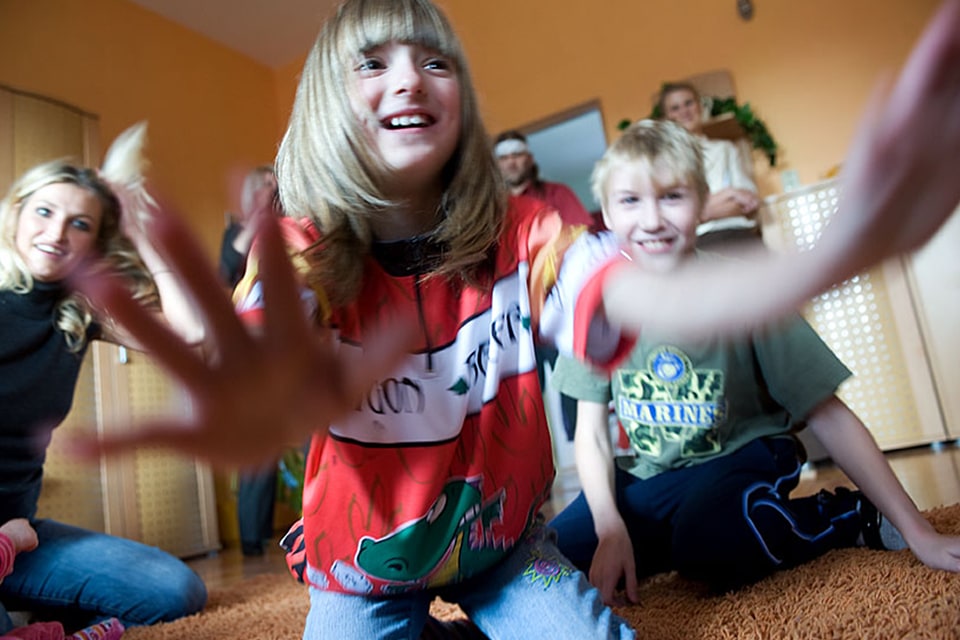
reinstating children in institutional care back with their families
…for a better chance to succeed in life and create their own happy family.
Because children who grow up in a family environment have a better chance at succeeding in life and creating their own happy family than those who grow up in institutional care.
READ MORE
Five-year-old Alenka and fourteen-year-old Mirek spent many months in a facility for children who require immediate and urgent assistance. Their parents were long-term drug users who failed to care for their children, not even visiting when they were consequently placed in a small family-type institutional facility.
The facility staff helped the siblings to settle in their new environment, devising a family map in one of the support sessions which revealed that Mirek was in touch with several relatives via social networks. The staffed helped initiate contact, and the grandmother and aunt soon showed up soon thereafter.
Although the aunt offered the children temporary visits, after much deliberation, she decided that they were unable to offer other children a permanent home. The institutional facility persevered in contacting family members, organizing a family conference in cooperation with the LATA organization, which is partially funded by the foundation. Seven relatives met with the children to help establish an alternative solution to caring for the children. It was decided that their other grandmother would take them into her care. Mirek was skeptical at first, having already experienced many disappointments, but Alenka remained full of optimism. Short term visits with their grandma proved successful, with the children continuing to receive emotional support through therapy near their grandmother’s home before they began to live together. Having formed new bonds at the facility, Mirek even joined the care workers for a holiday trip, whilst Alenka stayed with her grandma and transitioned to living in her new home. “The court deciding in favour of grandma’s care was the most beautiful gift we have all been waiting for”, said the social workers. “Today we are thrilled to watch the children enjoy time together in their extended family.”
The foundation supports projects like these in helping more children find their way home from institutional care!
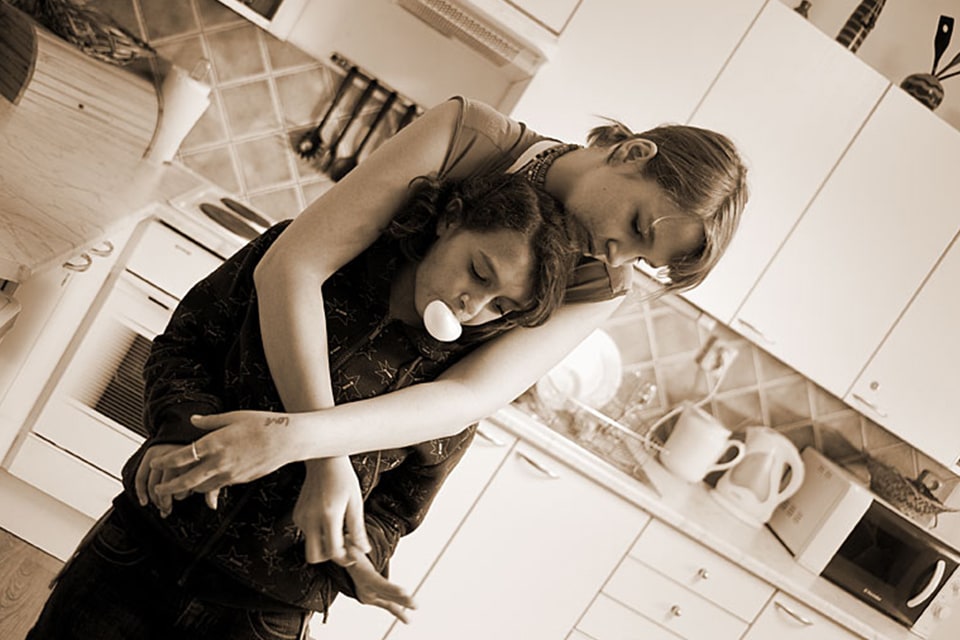
foster care and adoption
…because every child deserves love and needs to grow up in a safe, caring, accepting family environment.
And even if their biological family fails them, abandoned children can still find people with big hearts who would give them a loving foster home.
READ MORE
Lucie and Jan have raised their biological son and adoptive daughter, both now adults. Yet 20 years ago, they decided to open their home and their arms to other children – they became foster parents. They’ve welcomed three more children to their family with open arms, helping to prepare them for independent life; their oldest foster daughter now has her own family. With big hearts and room for more, the couple now has ten-year-old Karolína and nine-year-old Lada in temporary care. Both children are musically gifted; Karolínka sings in the choir, her brother plays the cello. “We try to give children unconditional love as much as we can, they are a gift for us and they are wonderful. Thank you for the opportunity to make a few little beings happier”, writes Lucie.
More children are waiting for a miracle – for a family that will give them love; a safe home where they would be surrounded with their loved ones, with their own toys and books. A haven that will provide them with precious memories to take with them when moving on, and where they know they will always have a place to call home. Help us to support foster care families and the Adopce.com project that promotes adoption and foster care and accompanies people through the whole process of adopting a child.
We hope to help more abandoned children find a loving home!
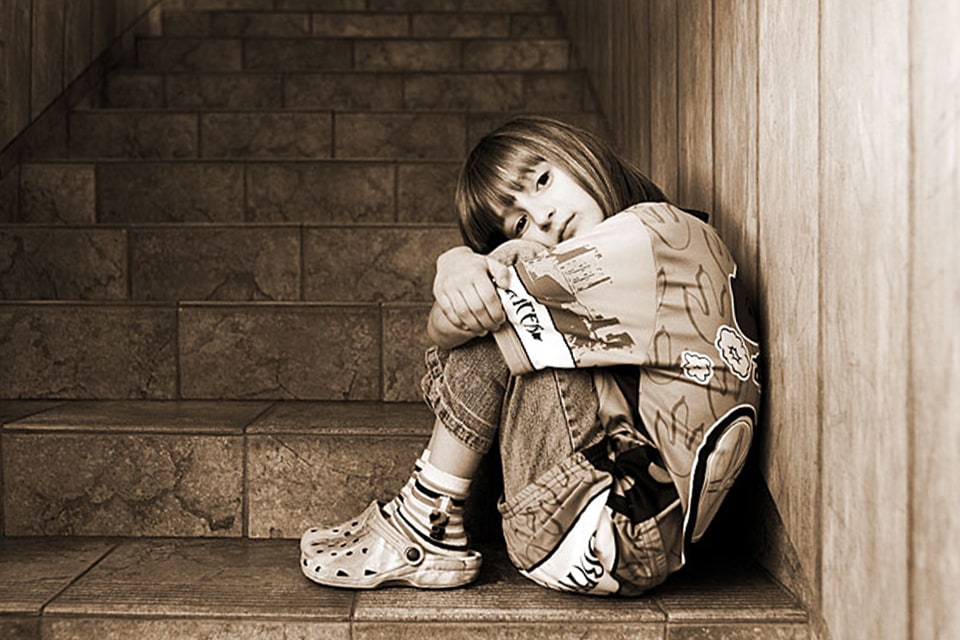
abused children find their way out of hell
…because unfortunately, some children have to live through more than they can bear.
The number of child abuse cases is on the rise. Speaking up is not easy, but it is necessary to make sure the children know where to ask for help. Specialized psychotherapists help mistreated and sexually abused children through victim hotlines and websites, offering assistance and helping them to reclaim their happy childhood.
READ MORE
“Hello… Can I write to you?” A ten-year-old girl messages the Children’s Crisis Center helpline chat. She is glad that she can write under the anonymity of a username, where no one can see or hear her. “She sent lots of crying emojis. I offer to help her under any circumstances,” says the consultant. “I learn that her mother works night shifts. An uncle (as they call him) looks after the girl. Something strange has happened recently. This ‘uncle’ wanted to wash her in the bathtub, stroking her inner thighs, even though she told him she was able to clean herself. She had to promise him she wouldn’t tell anyone… And she had broken that promise now. I feel her fear and shame, and I praise her courage to describe what had happened. And I offer a different perception of secrets: they can be good or bad. A good secret is to be surprised by a gift or share thoughts and ideas with a friend. The bad secrets are hurtful and forced promises of silence.
She thinks for a moment and then replies that her secret is probably bad. She longs for it to be over and for her mom to know. We plan how to tell her mother about the situation. We go through the conversation step by step so that my mother can understand what had happened. We are considering the possibility of a drawing. The girl likes that! She feels greatly relieved. We say goodbye and I assure her that should she or her mother need it, they can call the non-stop helpline: 777 715 215.“
The foundation supports expert assistance to help children break through the vicious circle of heartbreak and misery!
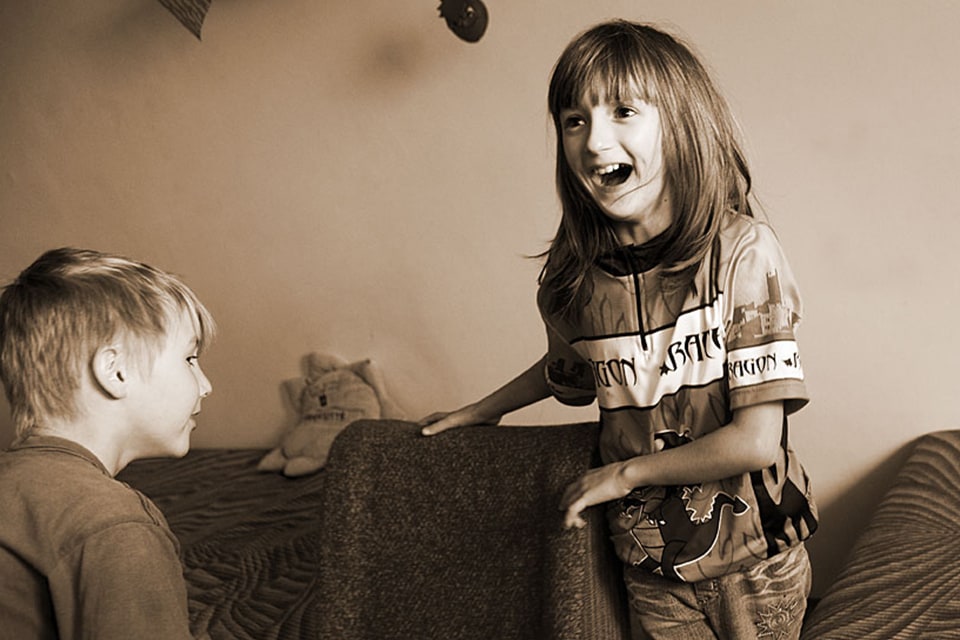
children from institutional care to enjoy a happy childhood
…because the orphanage teddy bear is simply not enough for a happy childhood.
Children from care homes lack close and exclusive relationships, undivided attention, and engaging experiences that shape a fulfilled childhood.
READ MORE
Whilst we might find holiday photos, campfire songs, trips to the zoo or hikes common marks of a happy childhood, many children from institutional care do not get the opportunity to experience these recreational activities. Yet no child should be denied the joy of such experiences. Our foundation helps provide opportunities to children in institutional facilities, allowing them to enjoy excursions, leisure activities and holidays to allow them to unwind and enjoy the world around them; forming happy memories that will last a lifetime, regardless of their circumstances. Our leisure programs and stays allow the children to spend time without the presence of aunts and uncles – with whom they are in contact all year round – and find new friends outside the care home. “I would like to thank you for a beautifully prepared celebration for my 18th birthday. I’ve never enjoyed anything like this. I am so glad that you are helping us and doing everything you can to give us the best time,” wrote Vašek. “We don’t want to go home, we want to be at the camp forever!” wrote the children from the Children’s Care Home in Krnsko. “Last year at the end of my stay I had one big wish that it would all happen again. And that will come true because this year, thanks to the Tereza Maxová Foundation, I will go again,” Patrik wrote to us. “We will go swimming and cook goulash. We are looking forward to it,” Radek wrote.
Growing up is not just about education, promoting independence and developing skills. It is also about feeling content, unique and self-confident, which in turn helps children to live a fulfilling life and start their own stable families in the future. This is exactly the chance children receive with the gift of a happy childhood.
We want to help children from institutional care to enjoy the experiences that are part of a fulfilled, happy childhood!

young people from the orphanage study
…because each person has a unique potential and deserves to be supported in their dreams and plans.
Investing in the education of disadvantaged young people is the best investment for their future.
READ MORE
Nikolas was surrendered to an orphanage at the age of four, but with adequate support, has not let the lack of a biological family hinder his motivation. “After a while, I started to see it as an opportunity and not as a punishment. Because life might not turn out as they wanted for a lot of children leaving the institutional care, I started to use what this care has to offer. I was able to graduate from a dream high school, and thanks to experience exchange visits in Spain and the UK. I am now preparing for a bachelor’s degree and I would like to continue with a master’s degree in business law. My education would not be possible without the care home and the support from charity foundations. I am very grateful for their help. I would now like to offer my example and motivation to others. It doesn’t matter what unfavourable situation you are in right now. It is important to use all available options, or look for new ones to pursue your dreams,” writes Nikolas.
We help young people like Nikolas fulfil their dreams of education!
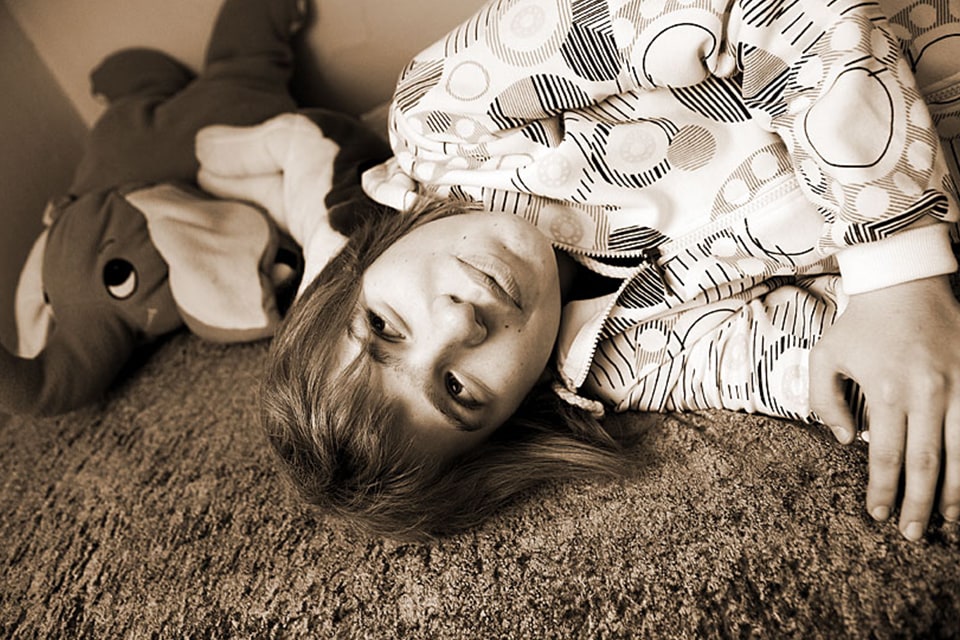
to heal wounded souls of children
…because the early life emotional deprivation leaves scars in the fragile child’s soul, wounds that take a lifetime to heal.
An unhappy childhood can last a lifetime, and early life emotional deprivation, separation from family, loss of support and collapse of the world as you have known can leave scars in a fragile child’s soul – wounds that take a lifetime to heal. Psychotherapy helps children cope with these experiences.
READ MORE
Eight-year-old Adélka and five-year-old Pavlík lived with their mother Lenka and father Pavel in a small town near Prague. Their father died suddenly in a car accident, leaving Lenka agonizing over painful questions surrounding Pavel’s death, and how to tell her children. “What would they ask? Aren’t the children too young to attend the funeral? Will they understand? And how do I tell them that we will get through it together? What if they suffer trauma, and how do I know that is the case? How will I raise them on my own? “
The counselling centres such as Vigvam offer a place where no one is alone in finding answers, a safe space for both little family members and the grown ones alike. During the sessions, the therapist talks to children and parents, using art therapy and playtime techniques that allow people to relax and start talking about their heartbreak in a soothing environment. The death of a loved one brings enormous pain, loss of security and insecurity. Therapy allows them to process pain at their own pace and age-appropriately while strengthening family ties that can be broken due to the suffering.
Through supporting therapists and other experts, we help to give children’s stories a happier ending!
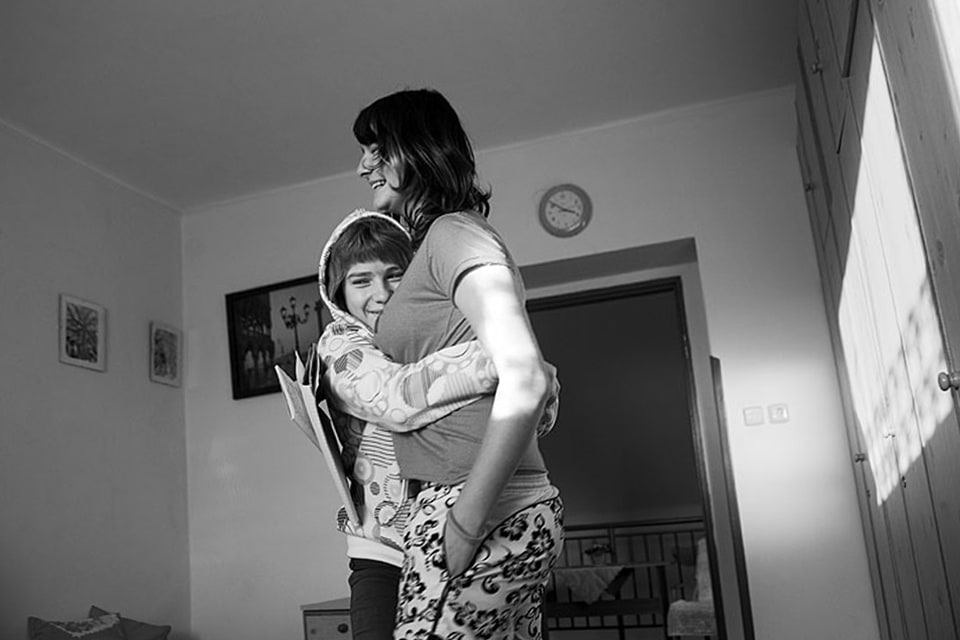
young people to find their place in the world
… because everyone deserves support to realize their potential.
Whilst young people in institutional care do not suffer material hardship, they lack the love and role models of their family and also an opportunity to gain practical experience. We help them to find their feet and successfully start their productive life.
READ MORE
“When I was little, they told me that if I misbehaved I would go to an orphanage. A few years later, paradoxically, I chose this path myself,” recalls Naďa, who was taken from the family with her sister. “It was a difficult decision, but the situation had been unbearable for a long time, as our mom drank. I found out that the children’s facility is not a rehab. However, the truth is that some children perceive it that way. The beginnings were very difficult, but I always perceived institutional care as a place where I could start all anew, I can develop and study at university. As the first person in my family. I wouldn’t dare to dream about it before. “
The Tereza Maxová Foundation supported Naďa during her studies, and after staying in the training apartment, Naďa is ready to pursue a new, independent life. “Currently, I am still in school and intensively dealing with my housing situation. Now is the time to leave the children’s home and enter a new stage of life, standing on my own feet. I have worries, but I believe I can make that step, although it will not be easy. I will be even more proud of myself when I make it,” adds Naďa.
